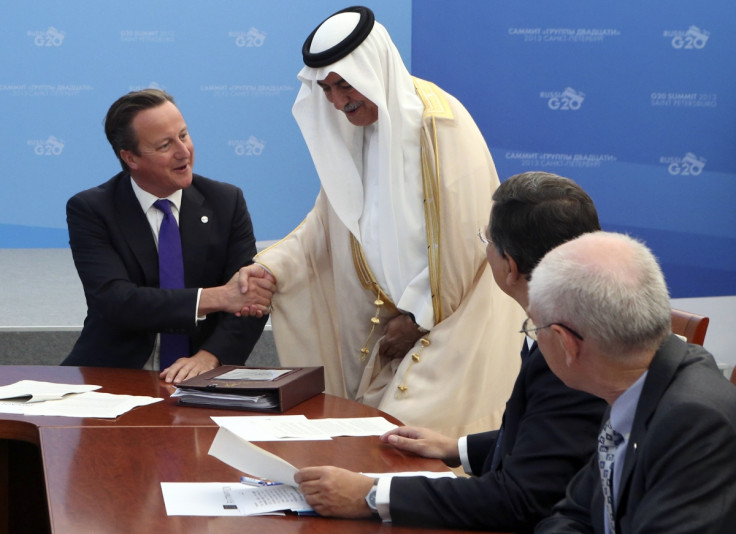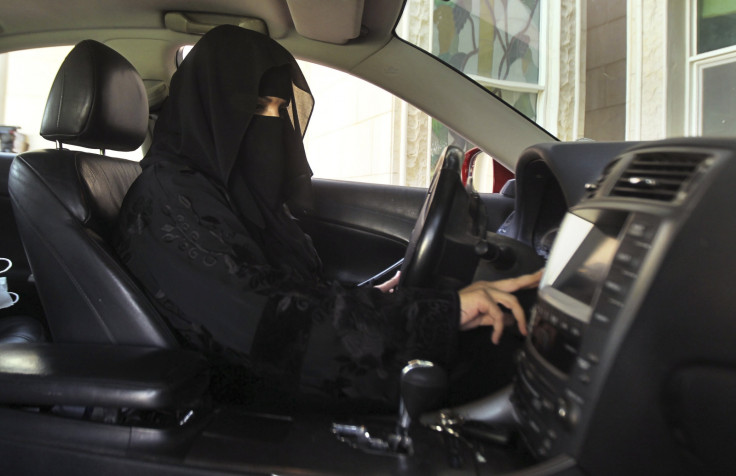UK made 'secret pact' with Saudi Arabia for human rights council place

The UK made a clandestine vote-trading deal with Saudi Arabia to enable both countries to secure a place in the UN Human Rights Council (UNHRC), leaked Saudi diplomatic cables have revealed.
The classified documents suggest David Cameron's government initiated backroom talks with Riyadh ahead of the November 2013 vote in New York to ask for support, The Australian reports. Both countries were eventually elected to the UNHRC, which has 47 member states.
A Foreign Office spokesman refused to confirm if the alleged vote-trading deal had taken place, saying it was "standard practice" not to reveal voting records. Saudi Arabia has one of the worst human rights records in the world, and has executed more than 130 people this year. Its recent appointment to the chair of an influential five-member UNHRC panel has drawn widespread criticism.
The cables, translated by the Australian newspaper, are among 61,000 files leaked from the Saudi Foreign Ministry by WikiLeaks in June. They also reveal the country spent $100,000 (£66,000; €89,000) on its campaign to secure a spot on the council.
Clandestine agreement
"The delegation is honoured to send to the ministry the enclosed memorandum which the delegation has received from the permanent mission of the United Kingdom asking it for the support and backing of the candidacy of their country to the membership of the Human Rights Council for the period of 2014-16," one Saudi cable dated January 2013 reads.
"The ministry might find it an opportunity to exchange support with the United Kingdom, where the Kingdom of Saudi Arabia would support the candidacy of the United Kingdom to the membership of the council ... in exchange for the support of the United Kingdom to the candidacy of the Kingdom of Saudi Arabia."
Another cable reveals a $100,000 bill for "expenditures resulting from the campaign to nominate the kingdom for membership of the human rights council", although it does not detail how this money was spent.

A spokesman for UK Foreign Secretary Philip Hammond did not deny the clandestine deal had taken place. He told the Australian: "As is standard practice with all members, we never reveal our voting intentions or vote.
"The British government's position on human rights is a matter of public record. We regularly make our views well known, including through the UN universal periodic review process and the Foreign and Commonwealth Office's annual human rights and democracy report, and raise human rights concerns with the Saudi Arabian authorities."
'Deeply concerned'
But Hillel Neuer from UN Watch - a non-governmental body that monitors the UNHCR - said it was "deeply concerned that the UK may have contracted to elect the world's most misogynistic regime as a world judge of human rights".
"The claim of the Foreign Office that concealing a country's UN vote is a 'standard practice' with 'all members' is manifestly false," he told the Australian.
"UN Watch finds it troubling that the UK refuses to deny the London-Riyadh vote-trade as contemplated in the Saudi cable, nor even to reassure the public that their voting complies with the core reform of the UNHRC's founding resolution, which provides that candidates be chosen based on their human rights record, and that members be those who uphold the highest standards of human rights."
The UNHRC's predecessor, the UN Commission on Human Rights, was abolished in 2006 after it was heavily criticised for allowing countries with dubious human rights records to be members.
© Copyright IBTimes 2025. All rights reserved.






















